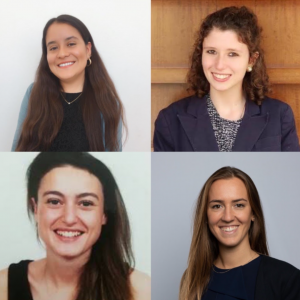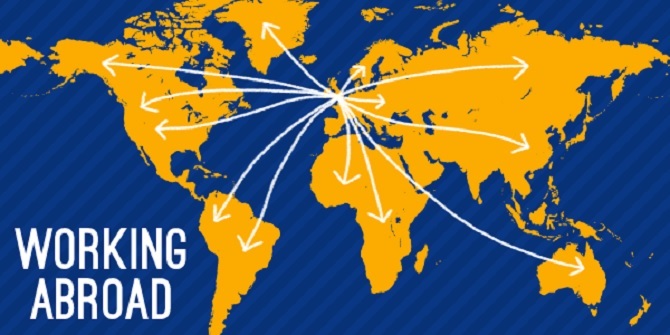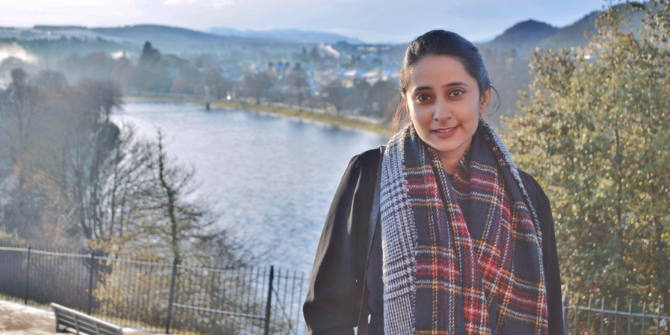This year, LSE was well-represented at the G20 Youth Summit (Y20) with five alumni from three different countries serving in official capacities – here’s what happened when we sat down with four of them to discuss their experiences and how their LSE education came in useful….
What’s the Y20 and what do delegates do?
As an official engagement group of the Group of 20 (G20), the Youth 20 (Y20) is a “forum for developing cooperation with future generations, and provides a platform for young people to have their voices heard on issues relevant to the G20 agenda.”
Led by Italy’s Young Ambassadors Society, the 2021 Y20 featured three innovative tracks – Future of Work; Inclusion and Equal Opportunities; and Climate, Sustainability and Energy – which corresponded to the G20 Italian Presidency’s focus on ‘People, Planet and Prosperity’.
Appointed by CSOs to serve on each of the policy tracks, the Y20 delegates were responsible for:
- representing and advocating for their countries’ youth (aged 18 to 30) and their policy interests and concerns
- proposing and advocating for policy solutions in bilateral and multilateral negotiations;
- drafting and finalising a consensus-driven outcome document (“communique”) on policy track areas; and:
- presenting the finalised communique to key stakeholders on the national and international levels.
You can read more about this year’s Y20 on the Y20 Italy website.
Introduce yourselves: What did you study at LSE and what did you do at this year’s Y20?
Jacqueline Maldonado, Rory Mondshein, Francesca Passudetti, and Margherita Parodi (pictured clockwise from top left in the feature image) represented LSE and their countries at the G20 Youth Summit.
Jacqueline Maldonado (JM): I obtained an MSc in International Political Economy in 2020. This year, I was the Mexican Youth delegate for the G20 on the Innovation, Digitalisation and Future of Work track. The main policies I worked on were focused on providing social and economic protection to key, informal, and domestic workers; creating education frameworks that adapt to young indigenous peoples; and providing the appropriate medical technological equipment to key workers in developing nations to increase their pandemic-recovery capability.
Rory Mondshein (RM): I graduated with a MSc in Human Rights in 2017. This year, I had the honor of serving as the United States Delegate to the G20 Youth Summit on the Inclusion track. I represented ‘American youth’ policy interests and priorities to promote change at the G20 level by working with delegates from 19 other countries to write and negotiate our communique. Recognizing that policy-writing can be a tool of healing and righting societal wrongs, I worked with 10 NGOs to develop six ‘Youth Innovation Hubs’ on various topics to provide personal and professional opportunities for young Americans to network with key stakeholders and improve their policy writing. I advocated for three intersectional policy proposals to reduce inequality through: access to affordable/reliable broadband; financing trainings to achieve 90 to 95 per cent digital and media literacy and reduce poverty and misinformation; supporting R&D into digital accessibility; fully inclusive infrastructure (including physical and virtual); and providing scholarships for people from underrepresented communities to pursue careers in healthcare to promote culturally-sensitive care, address disparities, and increase doctors per capita by 2030.
Margherita Parodi (MP): I finished my MSc in Human Rights in 2019. This year, at the G20 Youth Summit, I served as a Chair on the Inclusion track. Here I managed the agendas for the meetings and mediated the interactions between the delegates. It was brilliant to see so many young individuals so passionate about inclusion and engagement. I feel very fortunate to have been able to be a part of the event.
Francesca Passudetti (FP): I graduated from the MSc in International Management (IMEX) in 2016. This year, I was Head of the Italian Delegation to the G20 Youth Summit and Delegate on the Innovation, Digitalisation and Future of Work track. As delegate on Innovation, Digitalisation and Future of work, I worked on collecting input from the youth, drafting policies and negotiating them with the other 19 delegates on this track. The policies I primarily worked on focused on fostering digital literacy, digital health and youth innovation hubs. We also attended multiple workshops and panels by international organisations on the G20 2021 topics.
Describe your career pathway since leaving LSE, and how did it lead you to the Y20?
JM: Y20 Mexico Young Representative was the first role I was able to take on after my time at LSE. Having all the international politics knowledge still fresh in my mind, I was able to create innovative policy recommendations with strong academic arguments to tackle pressing global issues. Meanwhile, I was also able to get a job at the Mexican Federal Government’s department of development and indigenous peoples, which further enriched my participation at Y20 to prioritize the consideration of vulnerable groups within all the policies that were discussed.
RM: Since graduating from LSE with my MSc in Human Rights in 2017, I’ve pursued a diverse career in various sectors (including grassroots campaigns, government, academia, and civil society). I currently supplement my full-time job as a Constituent Liaison in the New York State Legislature with global-level advocacy through my part-time work with the Coalition for the UN We Need and the United Nations Association of the United States. As someone with experience in multi-sectoral and multi-level work, I have a strong understanding of working relationships, interests, and scale to maximize engagement with diverse stakeholders – which is why I was selected for my Y20 role on the Inclusion track.
MP: My MSc in Human Rights has been fundamental for me to pursue a career in the field of business and human rights. Having just concluded a research project at LSE IDEAS (the School’s foreign policy think tank) in partnership with the UN Trust Fund for Human Security, I am now Collective Action Coordinator at the Ethical Trading Initiative. My dissertation at LSE focused on whether business could operate in the Israeli Settlements without violating human rights. Thanks to this work, I also became involved with Amnesty International UK’s research work in the area. The time management and leadership skills that I developed during my academic and professional experience were key in my role at the Y20.
FP: Right after graduation, I relocated to Copenhagen to join the Novo Nordisk Graduate Programme and have worked in the pharmaceutical sector since, covering roles in public affairs, commercial planning and marketing. I recently joined ALK as Senior Innovation and Business Development Manager. Most of my job consists of stakeholder management and project management, and the Y20, too, requires aligning and collaborating with 19 other delegates to bring ambitious policies to the finish line in a limited amount of time.
Did taking part with fellow alumni bring back memories of studying at LSE?
RM: It definitely did! I was actually very nervous for my first bilateral negotiation, which coincidentally was with the Mexican delegation, because I did not know how it would be structured. When I found out that Jacquie was also an LSE alum, I felt a little more at ease because it was a common bonding point, and provided a little bit of levity and a natural conversation starter. Although I didn’t get a chance to meet all of my fellow LSE alums before the program, it was actually really amazing to find out that Francesca also advocated for ‘Youth Innovation Hubs” on the Innovation track and got it into the communique, which showed that our LSE minds are very much in sync. I am now so glad to be collaborating with her, both as a fellow LSE alum and colleague, to expand these Hubs to the global level!
JM: It absolutely did! On the one hand, because I was able to keep on having enthusiastic and in-depth discussions surrounding global issues as I did during my time at LSE, and on the other hand because I met a lot of LSE alumni at bilateral and multilateral meetings. Sharing the Y20 platform with fellow LSE graduates made me feel a certain familiarity and confidence on informal and formal events, as I felt I was amongst friends who belong to the same LSE community as me.
MP: Almost certainly, yes. There’s always a sense of familiarity and security about LSE and its alumni. I believe it comes from a mutual understanding of commitment, hard work and, most importantly, passion. Having shared such a big part of our academic career definitely added value to the experience at the Y20 as a whole.
FP: It surely did, and it established a good basis for collaboration, as we shared a common ground. It was both fun to bring back the good memories from uni and also interesting to learn about the different paths people have taken after graduating from LSE.
Did you use aspects of your LSE experience at the Y20?
JM: I did, the economic diplomacy experience I gained during my time at LSE was extremely important to decide how to approach other delegates with significantly different positions than mine. Also, having studied courses on gendered international politics, environmental politics, and development (amongst others), as well as having written my dissertation on Latin American development campaigns focused on indigenous peoples, was extremely relevant for me to incorporate intersectionality within the proposals I worked on.
MP: I think a lot of what I learnt at LSE is transferable, and not solely related to a particular area of study, i.e. human rights. Having been a part of such a big and diverse community during my MSc allowed me to practise skills around open-mindedness, mutual respect and striving to achieve positive change together. I believe these were core aspects of the Y20 that everyone shared and deeply believed in.
FP: My experience at LSE surely helped shape my argumentation ability, a key skill to successfully prepare and negotiate for policies. Moreover, studying with people from all over the world has taught me how to appreciate and collaborate with different cultures. Finally, the overall critical and research-based approach fostered by the university has proven itself useful for this experience.
RM: I absolutely did, in more ways than one. In my ‘Foundations of human rights’ class, we learned about the ways that we can use storytelling to promote ‘sentimental education’ and advocate for others. As the U.S. Delegate on the Inclusion track, I developed Youth Innovation Hubs to create safe spaces for American youth to share their stories and develop inclusive policies to rewrite our societal narrative with a focus on healing. I remember my advisors (Dr. Chetan Bhatt and Dr. Ayca Cubukcu) often encouraging me to speak up and believe in the power of my ideas because we are never as alone as we think we are; I believe that partly inspired my goal of creating my first-of-its-kind Hubs to serve as a space for collective healing and action to let others that they are not alone. Throughout the Y20, I can also say that I used my LSE dissertation on the economics and externalities of exclusion to advocate for my policy agenda. By showing that it costs governments and stakeholders more money to disenfranchise underrepresented (and marginalized) communities than it does to invest in social programs to promote human rights, I was able to supplement moral calls to action with economic evidence in my bilaterals, multilaterals, and post-Y20 follow-up to appeal to more actors and stakeholders.
Was there a key thing you’ve learnt from the Y20 that you think you’ll use in your day to day role, or in your career journey?
JM: I learnt that intersectionality and addressing the issues of the most vulnerable groups and people who belong to minorities is a fight that is always worth fighting for (however cordially and diplomatically). My main takeaway was definitely that we, as young people and LSE alumni, have a duty to put inclusion at the forefront of any discussion within our own environments to truly contribute to making this world a little better day by day. Inclusion is a topic that shall transcend personal views and political agendas.
RM: I absolutely agree with Jacquie! I think that the Y20 experience reinforced the idea that we, as young people, experience many of the same challenges around the world. Y20 proved that we need to think outside of the confines of our countries, and see ourselves through a global lens. The Y20 was a pleasant reminder that we are never alone in our struggles and our fight for a better world. We have a responsibility to advocate with each other, and learn from one another.
MP: The greatest thing I learnt from the Y20 is how much so many people can care, and how much good they can achieve if they are given a platform to discuss and share their views. I will always cherish having witnessed that, and I truly hope I will be able, in my future career, to create such spaces, for myself and for others.
FP: I definitely agree with Jacquie on the responsibility we have to continue fostering inclusive progress, not only as youth but also as women. This is something I will continue doing more of in my professional life.
Interested in a career in an international organisation? Check out our sector webpage on IOs






